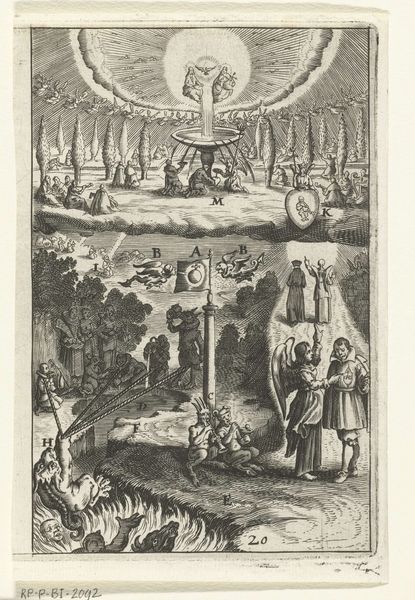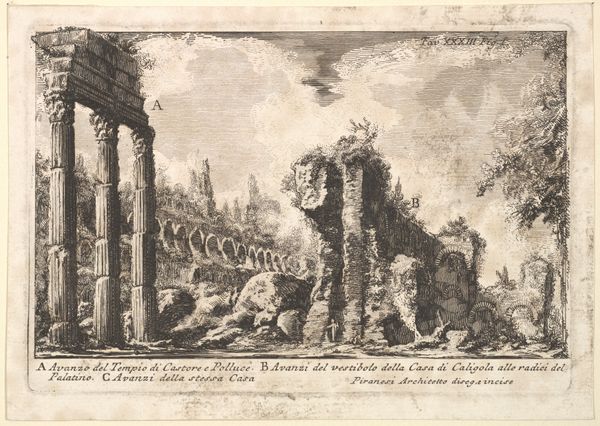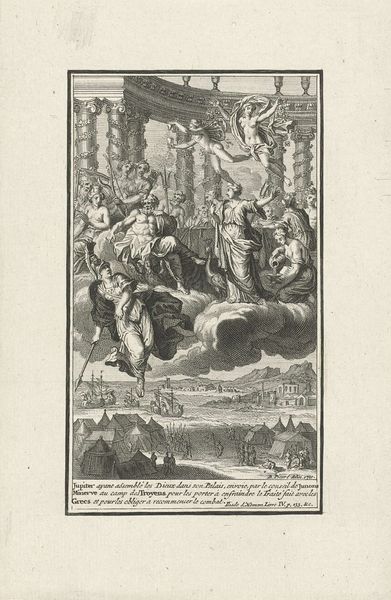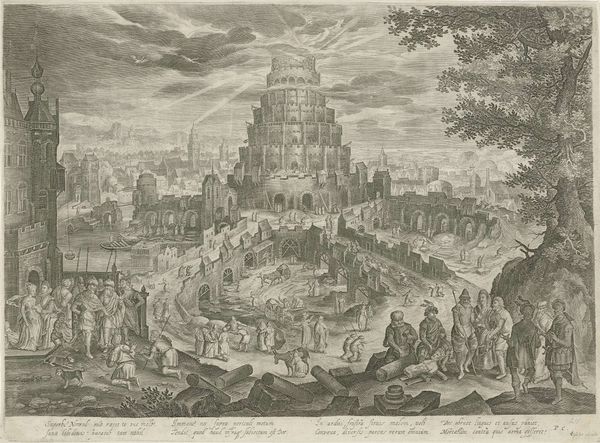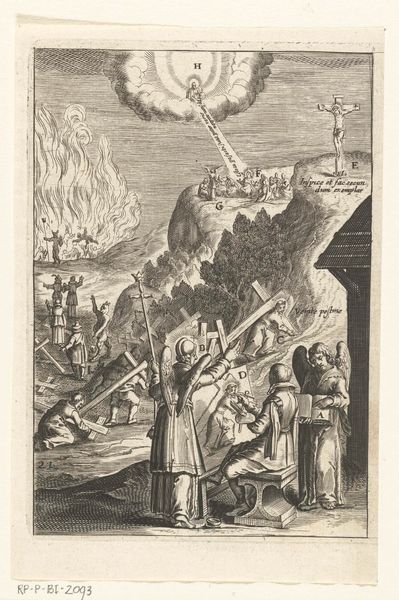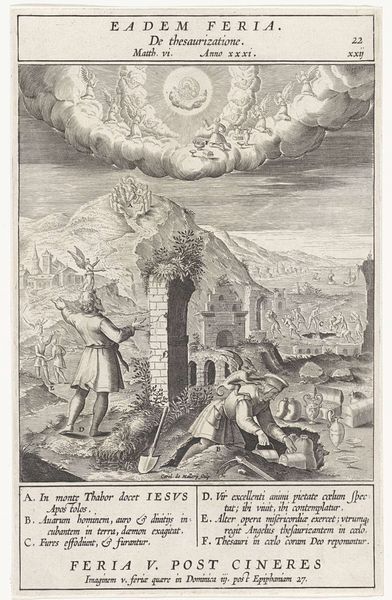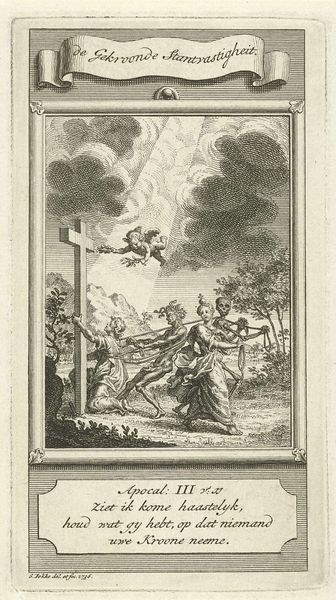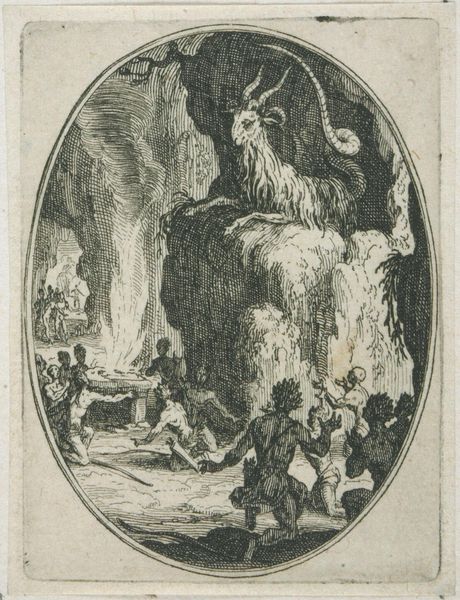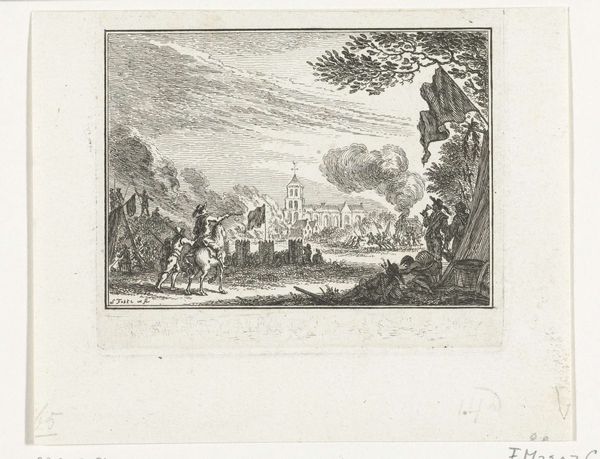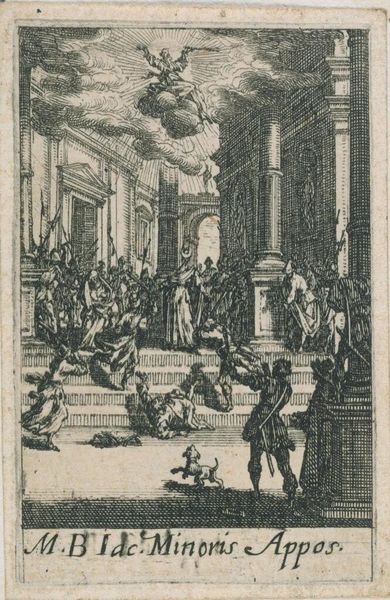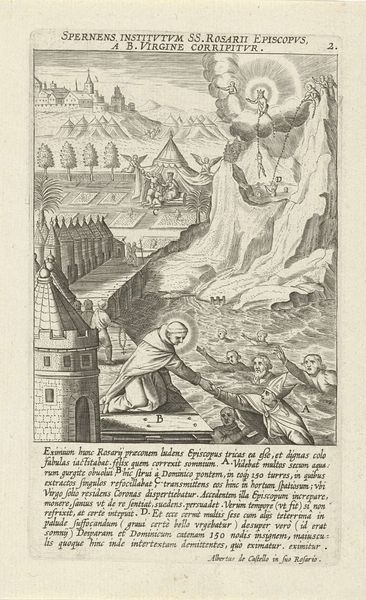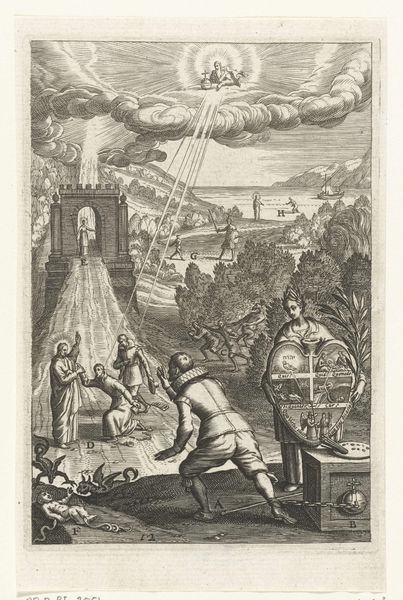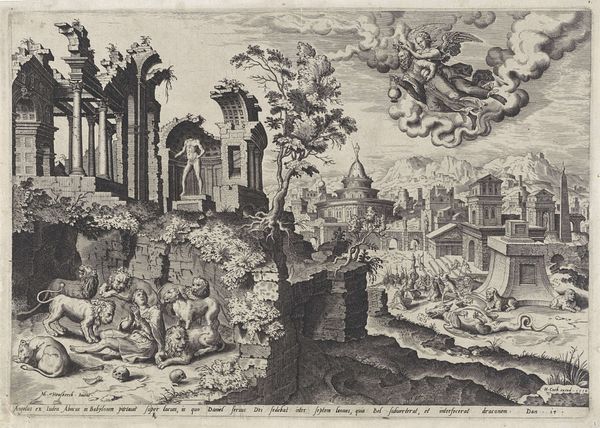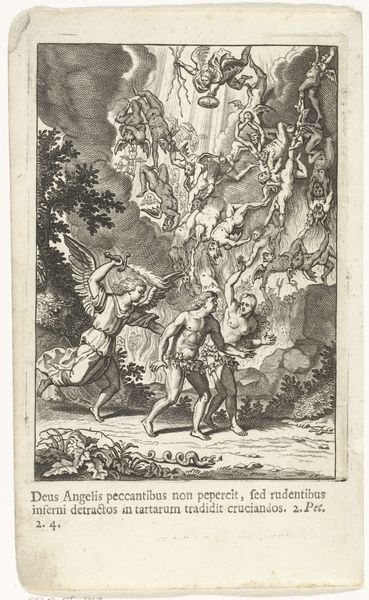
print, engraving
#
baroque
#
pen drawing
#
mechanical pen drawing
# print
#
pen illustration
#
pen sketch
#
old engraving style
#
figuration
#
personal sketchbook
#
pen-ink sketch
#
line
#
pen work
#
sketchbook drawing
#
history-painting
#
sketchbook art
#
engraving
Dimensions: height 118 mm, width 67 mm
Copyright: Rijks Museum: Open Domain
This is an etching made by Romeyn de Hooghe, probably sometime around 1700. The image is all line, incised into a metal plate with a sharp tool, then printed with ink onto paper. Note the artist's virtuosic handling of the medium: the way he creates a sense of depth and volume with nothing but tightly packed marks, how the smoke and flame effects are conjured from thin air. The technique itself has social implications. Etching was a relatively democratic medium, capable of circulating images widely at low cost. Here, that accessibility serves to amplify the themes of death and legacy depicted. De Hooghe was very prolific, and this print is typical of his interest in ritual and spectacle. The image shows an elaborate funerary monument, surrounded by mourners. What’s really interesting is how de Hooghe uses the graphic language of printmaking to capture the social theater of death. He transforms something morbid into a compelling, even beautiful, object. It makes you consider how image-making helps us to process the most fundamental human experiences.
Comments
No comments
Be the first to comment and join the conversation on the ultimate creative platform.
